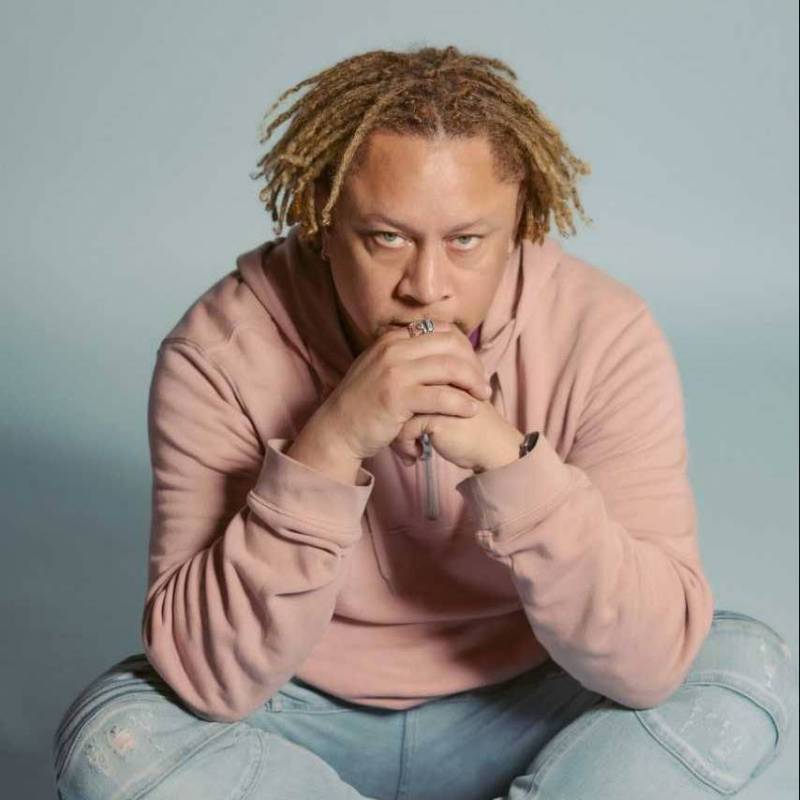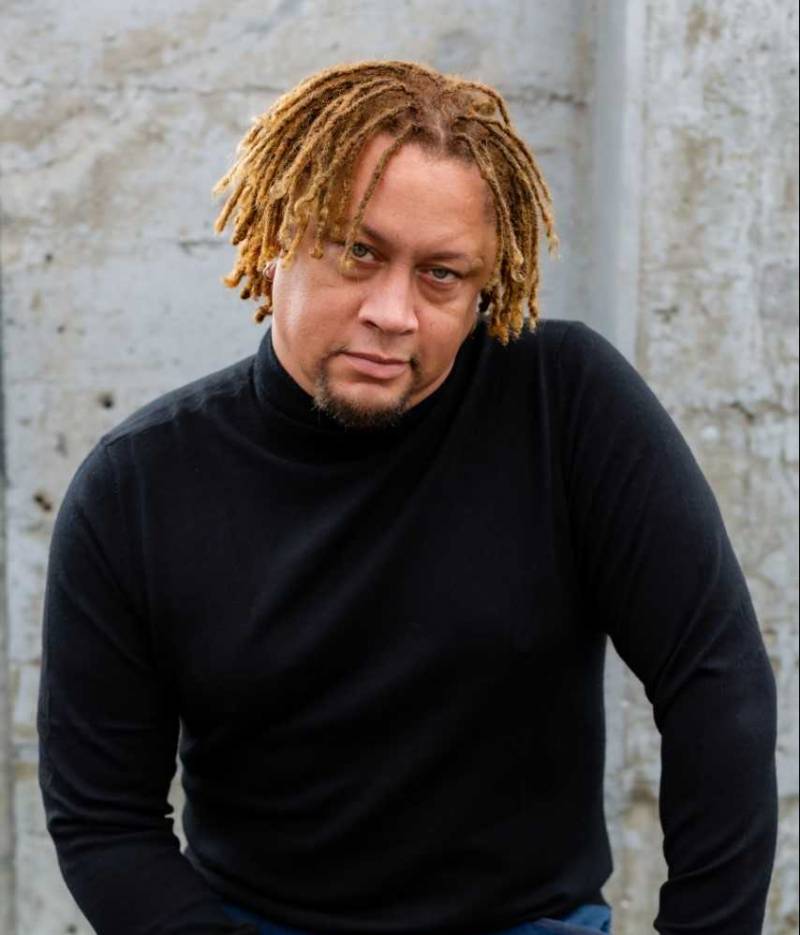
Editor’s Note: Welcome to National Poetry Month. Twice each week in April, KQED Arts & Culture will present a poem by a Bay Area poet. This series is curated by Rightnowish host Pendarvis Harshaw, who also speaks with each poet about their work.
‘Middle Passaged,’ by Dazié Grego
Born of cotton wombs
Softly whipped
to coffin
Nappy hair to prune
in hopes to stop the laughin’
Blistered foot is doomed
to walk, another day
Uneducated tongue
careful what you say
Broke shoulders spend your life
Hesitant but look
See not what holds today
but pray for what’s been took
We connect to our ancestors
through the dialect we speak.
We protect our broken English
Our so called “poor” grammar
Because more important than any language
is the oral history we must keep
It is swimming between our tongues
and the very roof of our mouths.
It is an accent from Africa, United States
North or South
We are the children who have no written language
We hieroglyph pilgrims of the ocean
We Voo Doo Prince
Eyes weeping willows
Green moss and forgotten days of mounting lions
who still know our names.
They pace behind bars
in zoos
Not unlike to many young Black brothers
The growls disturb the once sweet dreams
We hear them under covers
Can’t reach for the hand of God
but passed the hand of mothers
Hoard the love that’s in your heart
then look for some from others
He thrashes his hips against his lover
Refuses to turn over
and become receptive
Believes that death is born of absorbing
His lovers own dying seed
Nothing grows.
Wearing skin
like withered leaves
Press your ear to my chest
Hear the mischievous wind
left seeping,
heart keeping
Kisses left by breath
that can not be perceived
Do not forget
the beloved can always leave
Water thrusts spilling blood of pirates
with swords unsheathed
Froth on the shore
Un-drying saliva of Africans bones and names
that will never be retrieved
I look to her call out cousin
scream “uncle”
Cry do you remember me?
Was it the vessel, the ocean, or pale skins
that stole you from me?
No tears travel from the green in my Atlantic
I middle passaged tenderly.

Pendarvis Harshaw: What inspired this piece?
Dazié Grego: This poem was born in an attempt to identify the moment in our history that an African womb became “a cotton womb.” One giving birth to an African child. The other producing a Black slave. “Born of cotton wombs” was a thought that I felt compelled to complete. I investigate the origin of Blackness throughout many of my poems. In other words, I am inspired by exploring how our survival in this country has caused Africans to transform into Black Americans. I see the Middle Passage as the first major catalyst in producing that change.
When you write or perform, do you feel a connection to your ancestors? If so, can you describe that feeling?
Poetry is the language my ancestors speak. Often, I have said that I don’t possess the gift of writing. It is a gift that possesses me. Some of my best work was written as if I was being dictated to by an outside force. That force is the collective voice of my ancestors. It tells me who I am, and whose I am.
What is the role of poetry in society?
Poems are playgrounds for our words and a refuge to our emotions. They are the essence of empathy, mirrors we use to reveal the true nature of our humanity. Poetry is where society looks in order to experience us as our highest selves. It is the origin of self-revelation. When all other forms of communication have failed, we write and read poems.
![]()
Dazié Grego performs on May 14 and 15 at 3pm at the main branch of the San Francisco Public Library as part of Skywatchers, a Tenderloin performance art ensemble of which he is an associate artistic director. Details here.
Grego’s 2020 poetry collection ‘Black Faggotry’ (Nomadic Press) is available here, and his spoken word album ‘Make Me Black’ is available here.

